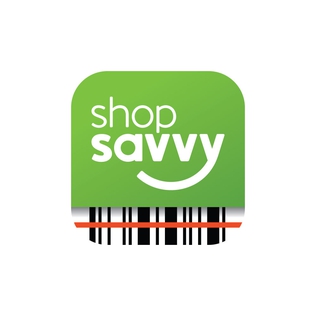
hi5 is an American social networking service based in San Francisco, California. It is owned by The Meet Group.

Xobni was a San Francisco-based company that made software applications and services including products for Microsoft Outlook and mobile devices. It was founded in March 2006 by Adam Smith and Matt Brezina from Adam's dorm room in Cambridge, Massachusetts, as part of the Y Combinator summer founder's program. In late 2006, it relocated to San Francisco to be closer to Silicon Valley. It was acquired by Yahoo! in July 2013 for more than $60 million and shut down one year later.
Wrike, Inc. is an American project management application service provider based in San Jose, California. Wrike also has offices in Dallas, Tallinn, Nicosia, Dublin, Tokyo, Melbourne and Prague.
Apache Cordova is a mobile application development framework created by Nitobi. Adobe Systems purchased Nitobi in 2011, rebranded it as PhoneGap, and later released an open-source version of the software called Apache Cordova. Apache Cordova enables software programmers to build hybrid web applications for mobile devices using CSS3, HTML5, and JavaScript, instead of relying on platform-specific APIs like those in Android, iOS, or Windows Phone. It enables the wrapping up of CSS, HTML, and JavaScript code depending on the platform of the device. It extends the features of HTML and JavaScript to work with the device. The resulting applications are hybrid, meaning that they are neither truly native mobile application nor purely Web-based. They are not native because all layout rendering is done via Web views instead of the platform's native UI framework. They are not Web apps because they are packaged as apps for distribution and have access to native device APIs. Mixing native and hybrid code snippets has been possible since version 1.9.

ZumoDrive is a defunct cloud-based file hosting service operated by Zecter, Inc. On December 22, 2010, Zecter announced its acquisition by Motorola Mobility. The service enabled users to store and sync files online, and also between computers using their HybridCloud storage solution; the latter functionality stopped working in approximately September 2011, while the former was undergoing formal takedown on May 1, 2012. ZumoDrive had a cross-platform client that enabled users to copy any file or folder into the ZumoDrive virtual disk that was then synced to the web and the users' other computers and hand-held devices. Files in the ZumoDrive virtual disk could be shared with other ZumoDrive users or accessed from the web. Users could also upload files manually through a web browser interface. A free ZumoDrive account offered 2 GB of storage, and users could upgrade to paid plans ranging from 10 GB to 500 GB for a monthly subscription fee. The ZumoDrive service was integrated into Yahoo! Mail, allowing users to send or receive any file on their ZumoDrive, and powers HP's recent CloudDrive technology, bundled on all new HP Mini netbooks.

Scoreloop, a subsidiary of BlackBerry, was a cross-platform social gaming network for the operating systems including BlackBerry, Android, Bada, iOS and Windows Phone 7.
CrowdStar is a former developer of Facebook and mobile games, based in Burlingame, California, United States and Dublin, Ireland. The company developed several titles for the Facebook platform, with some of its most popular titles being Happy Aquarium, Happy Pets, Wasteland Empires and It Girl, and a number of titles on mobile for the iOS, Android and Windows Markets, including Design Home, Fish WithAttitude, Phuzzle, Top Girl, and Covet Fashion. It was acquired by Glu Mobile in 2016.

GREE, Inc. is a Japanese Internet media company with headquarters in the Roppongi Hills Mori Tower in Roppongi, Tokyo. It has been operating the social network service GREE since its establishment in December 2004.
A mobile application or app is a computer program or software application designed to run on a mobile device such as a phone, tablet, or watch. Mobile applications often stand in contrast to desktop applications which are designed to run on desktop computers, and web applications which run in mobile web browsers rather than directly on the mobile device.
GyPSii is a provider of geosocial networking applications and services for the iPhone, iPod, iPad, BlackBerry OS, Android and Java-based phones, Symbian S60 and S40, Windows Mobile and MID notebooks. The company is headquartered in Amsterdam, Netherlands, with offices in Asia and the United States.

ShopSavvy is a mobile application for shopping that scans products and finds online and local stores providing those products. Additionally, ShopSavvy compares the prices, displays user reviews, and searches for deals and discounts on scanned items. The app was developed by Rylan Barnes, Jason Hudgins and Alexander Muse, who won the “Google’s Android Developer Challenge" and subsequently founded ShopSavvy, Inc.
140 Proof is an advertising company that uses social data from many sources in targeting relevant ads based on consumers' interests as indicated by their social activity across networks.
Intel Capital is a division of Intel Corporation, set up to manage corporate venture capital, global investment, mergers and acquisitions. Intel Capital makes equity investments in a range of technology startups and companies offering hardware, software, and services targeting artificial intelligence, autonomous technology, data center and cloud, 5G, next-generation compute, semiconductor manufacturing and other technologies.

Appcelerator is a privately held mobile technology company based in San Jose, California. Its main products are Titanium, an open-source software development kit for cross-platform mobile development, and the Appcelerator Platform.
Testdroid is a set of mobile software development and testing products by Bitbar Technologies Limited.
Socialpoint is a Spanish video game developer based in Barcelona. Founded in October 2008 by Horacio Martos and Andrés Bou, the company specializes in free-to-play mobile and social network games. Socialpoint was acquired by Take-Two Interactive in February 2017.

AlterGeo, formerly known as Wi2Geo, is a Russian IT company specializing in the development of a global hybrid positioning system which combines Wi-Fi, WiMAX, GSM, GPS, LTE, IP address and network environment approaches. It also created cross-platform location-based services Gvidi and AlterGeo, and hyperlocal banner ad system Local Hero.
TinyCo is a mobile video game studio and the creator of Family Guy: The Quest for Stuff, Futurama Worlds of Tomorrow, Marvel Avengers Academy, Guess!, Spellstorm, Tiny Castle, Tiny Monsters, Tiny Village, and Tiny Zoo.

Cafe Bazaar is an Iranian app store for the Android operating system, founded in April 2011 by Reza Mohammadi and Hessam Armandehi. Cafe Bazaar tailors its services specifically towards Persian-speaking users and offers more than 25,000 downloadable Iranian and international apps for gaming, social media, messaging and other uses.










